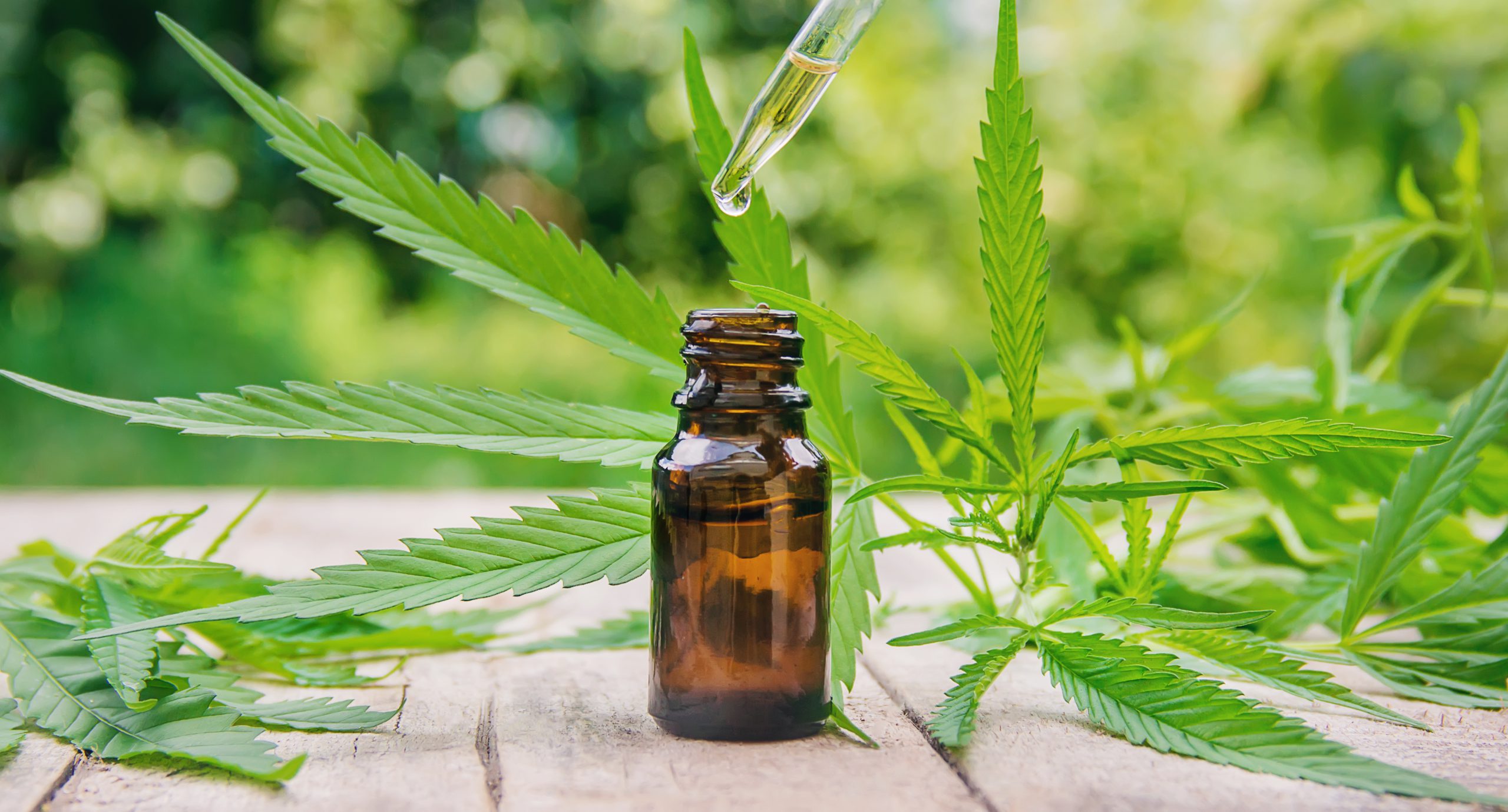The Benefits of CBD

Introduction
The world is rapidly embracing CBD as a means of treating a wide variety of physical and psychological conditions. As explained in a previous article titled “What is CBD?” it is one of more than 100 cannabinoids extracted from Cannabis sativa. Hemp and Marijuana are both forms of this plant. Ancient doctors and healers used cannabis in their medicines because they witnessed first-hand its benefits. The first written record of the use of Cannabis sativa occurs in ancient Chinese texts dating back to 2900 B.C. The Shennong Ben Cao Jing, a Chinese encyclopedia on agriculture and medicine, contains the oldest written record of cannabis as a medicine, recommending cannabis for constipation, rheumatic pain, female reproductive tract disorders, and malaria.
CBD and the Endocannabinoid System
The Endocannabinoid System (ECS) was first identified by Prof. Raphael Mechoulam from the Hebrew University in Jerusalem, in the mid-1990s. It is possibly one of the most important recent discoveries relating to maintaining our health. A more detailed explanation of the ECS can be read in a previously published article titled “What is CBD?” Essentially it is a complex signaling system consisting of endogenous cannabinoids, which are molecules created naturally by our bodies and the receptors they bind to, known as CB1 and CB2. These receptors are not only found in the brain but also in many organs as well as connective tissue, skin, glands, and immune cells.
Because these receptors are integral to so many bodily systems the list of CBD benefits and health concerns treatable by CBD is extensive. Research on the benefits of CBD is ongoing, so it is likely new therapeutic uses for this based on this natural remedy are sure to be discovered in the near future.
In this article we will focus on just two of the known benefits of CBD; relief from pain and its application in skin care products.
Relief from Muscle Pain
CBD is commonly taken in the form of edibles or as CBD oil or tincture, however, CBD has limited oral bioavailability of the CBD. One area where CBD products are rapidly growing is in over the counter CBD infused topical formulations to treat muscle pain. Pain Relief CBD Cream, Spray and would be sold as topical OTC products. These particular products contain an analgesic blend of active ingredients menthol and methyl salicylate with natural ingredients magnesium and CBD to provide temporary relief of muscle and joint pain.
Using a topical application such as a Pain Relief CBD cream has several advantages:
Localized treatment – Applying the CBD cream directly to the affected area allows it to go straight to the source, focusing the effects of CBD directly on a problem area.
Fast relief – topical applications are easily absorbed into the skin and begin working immediately. CBD is a proven anti-inflammatory and will work to assist reducetion of inflammation in the affected area.
Because of the effective relief these products provide, they have found their way into the pre and post workout routines of athletes and individuals alike, but they are not the only ones benefiting from the pain relieving properties of CBD.
Relief from Symptoms of Arthritis
Arthritic pain is another area where oral and topical formulations are being used by individuals to help reduce inflammation caused by arthritis. In fact, industry reports indicate that people with arthritis are among the top buyers of CBD products. The Arthritis Foundation posted this statement regarding the use of CBD products to treat arthritis:
“We are intrigued by the potential of CBD to help people find pain relief and are on record urging the FDA to expedite the study and regulation of these products.”2
The Arthritis Foundation recently conducted a study of 2600 arthritis patients. The majority of the respondents were suffering from either Osteoarthritis or Rheumatoid Arthritis. Here is a sample of some of the survey results:
- 79% surveyed are currently using CBD, have used it in the past or are considering using it.
- 29% report they currently use CBD to manage their arthritis symptoms.
- Daily use is reported by 63% percent of those currently using CBD and 26% use it several times per week.
- Of those surveyed, 62% use a liquid form of CBD and 55% use a topical product they apply to their joints.
- 87% of those who are currently using it say they use CBD to manage their arthritis symptoms.
- The primary reason for using CBD is to relieve pain (94%)
In addition the majority of respondents reported improvement in their physical function (67%), improved ability to sleep (71%), relieved symptoms of anxiety (77%), better overall sense of well-being (41%) You can read the results of the full study here.
The undeniable conclusion here is that even though this is not a clinical study, the survey results speak overwhelmingly in favor of CBD as a treatment for the symptoms of arthritis. Interestingly, two separate clinical studies conducted on rats corroborate these survey results. The rats received an injection at a leg joint that produced the same inflammation as rheumatoid arthritis. In one study the rats received an oral dose of CBD and in another a topical gel. Both study results showed reduced inflammation in the affected joints.
Relief of Chronic Pain
One of the best examples of how CBD contributes to chronic pain relief was demonstrated in a study involving 177 patients with cancer pain, who experienced inadequate pain relief from opioid based medications. The findings were published in the Journal of Pain and Symptom Management, February, 2010 titled, Multicenter, Double-Blind, Randomized, Placebo-Controlled, Parallel-Group Study of the Efficacy, Safety, and Tolerability of THC:CBD Extract and THC Extract in Patients with Intractable Cancer-Related Pain.
The study compared the efficacy of a THC:CBD extract, a nonopioid analgesic endocannabinoid system modulator, and a THC extract, with placebo in relieving pain in patients with advanced cancer. The patients entered a two-week, multicenter, double-blind, randomized, placebo-controlled, parallel-group trial.
Study Results
Results showed that those treated with an extract containing both THC and CBD compounds experienced a statistically significant reduction in pain compared to those who received only THC extract and Placebo. Nearly twice as many patients taking the THC:CBD extract experienced a greater than 30% reduction in pain intensity compared to those taking only THC extract and those taking placebo.
Study Conclusion
The study concludes that the THC:CBD extract is an effective treatment for cancer-related pain in patients who are not achieving an adequate analgesic response to opioids when it is used adjunct to regular medications. Given that the THC:CBD extract resulted in nearly twice the number of patients reporting a reduction in pain than the THC extract alone suggests that CBD plays a major role in achieving these results.
CBD in Skin Care
Makers of skin care products have only just started offering products infused with CBD. The global CBD skin care market was valued at USD 234.1 million in 2018 and is expected to balloon to USD 1.7 billion by 2025. Retailers like Sephora have dedicated a section in their stores to showcase CBD infused cosmetic products.
Acne and Other Skin Conditions
It is generally acknowledged that CBD is safe and effective for all skin types, but is particularly useful for people who struggle with acne, sensitivity, inflammatory conditions and dryness related to skin. A products such as CBD Glow Oil or CBD Face Cream can help repair damaged skin by reducing inflammation and restoring its natural radiance
Although acne can be triggered by a variety of factors, research has firmly established that acne is an inflammatory condition. Numerous studies have shown that CBD has anti-inflammatory benefits when applied to skin. This makes CBD a suitable ingredient for a product like CBD Beauty Serum, which is left on the skin to be absorbed and work to reduce the inflammation and inhibit oil production by the sebaceous glands.
Another benefit of CBD is that it has been found to have significant soothing properties. Its substantial skin-calming and skin-normalizing effects can help minimize issues related to skin sensitivity, including redness and reactivity. Since all skin types are affected daily by environmental stressors, CBD’s soothing mechanism can help keep everyone’s skin in check. The calming benefits of CBD can help reactive skin look and feel better and sooth dry and itchy skin. (Reference)
How Does It Work?
The skin has the highest amount and concentration of CB2 receptors in the body.CB2 receptors are associated with immune cells. Although CBD doesn’t bind directly with the CB2 receptors, it is thought that it triggers and regulates the body’s naturally produced endogenous cannabinoids while at the same time interacting with the CB2 receptor, activating the immune cells to fight inflammation in the skin.
Research also shows that CBD has the potential to decrease excess sebum (oil) production, possibly due to its balancing effect on the quality of skin’s oil. Because of its strong inflammatory properties, CBD helps in skin’s natural healing process, lowering the life span of breakouts.
CBD and Aging
CBD can help in counteracting signs of aging by relieving stress, improving blood circulation, acting as an antioxidant, as an anti-inflammatory and by increasing collagen production.
Stress
It’s a known fact that stress ages us. CBD interacts with the ECS to help reduce stress by interacting encouraging the production of serotonin. It is also thought to improve sleep which gives the body an opportunity to remove toxins and regenerate body cells. This results in better health and appearance of the skin and the body. It also improves the body’s response to stress and reduces frown lines and that way prevents the appearance of fine lines and wrinkles.
Blood Circulation
Poor circulation leads to unhealthy skin cells, slow cell regeneration and skin discoloration. CBD has been shown in studies to affect our cardiovascular system through interaction with CB1 and CB2 receptors. Improved circulation means healthier cells. The result is better health generally and better skin health.
Antioxidant
Free radicals produced by our body and the environment contribute to the breakdown of cells and collagen in the body. CBD is known to be a powerful antioxidant that can help to destroy these free radicals. When products such as Anti Aging CBD+ Facial Serum and Anti Aging CBD+ Eye Serum are applied the antioxidant in CBD can repair damage from free radicals like UV rays and environmental pollutants.
Anti-inflammatory
CBD works with CB2 receptors, stimulating immune cells to fight inflammation. Anti Aging CBD+ Eye Serum can work to reduce puffiness around the eyes while CBD Sleeping Mask can work to improve skin health and reduce the appearance of fine lines and wrinkles.
Increased Collagen Production
Research has found that CBD improves the production of collagen making the skin and muscles firmer and thereby reducing the appearance of wrinkles.
The Medical Community is Divided
Despite the many studies that have demonstrated positive results from the use of CBD in treating various health issues and maintaining health, the medical community remains divided. The following statement made by the authors in a study on cannabinoids and gastrointestinal disorders, published October, 2016, underscores the need for the medical community to come together and recognize the importance of cannabis-based medicines.
“Despite the political and social controversy affiliated with it, the medical community must come to the realization that cannabinoids exist as a ubiquitous signaling system in many organ systems. Our understanding of cannabinoids and how they relate not only to homeostasis but also in disease states must be furthered through research, both clinically and in the laboratory.” 1
These words emphasize the importance of continued research in order for the medical community to develop a unified view of the endocannabinoid system,
Sites Referenced for This Article
https://www.ncbi.nlm.nih.gov/pmc/articles/PMC5549367/
- Reichenbach, Z.W., Schey, R. Cannabinoids and GI Disorders: Endogenous and Exogenous. Curr Treat Options Gastro 14, 461–477 (2016) doi:10.1007/s11938-016-0111-1
https://en.wikipedia.org/wiki/Raphael_Mechoulam
- https://www.arthritis.org/living-with-arthritis/pain-management/chronic-pain/arthritis-foundation-cbd-guidance-for-adults.php
https://www.healthline.com/nutrition/cbd-oil-benefits#section1
https://www.jpsmjournal.com/article/S0885-3924(09)00787-8/fulltext
https://www.healthline.com/health/cbd-oil-for-pain
https://www.grandviewresearch.com/press-release/global-cbd-skin-care-market
https://www.jpost.com/HEALTH-SCIENCE/Interesting-facts-about-CBD-anti-ageing-cream-591861
More articles:



